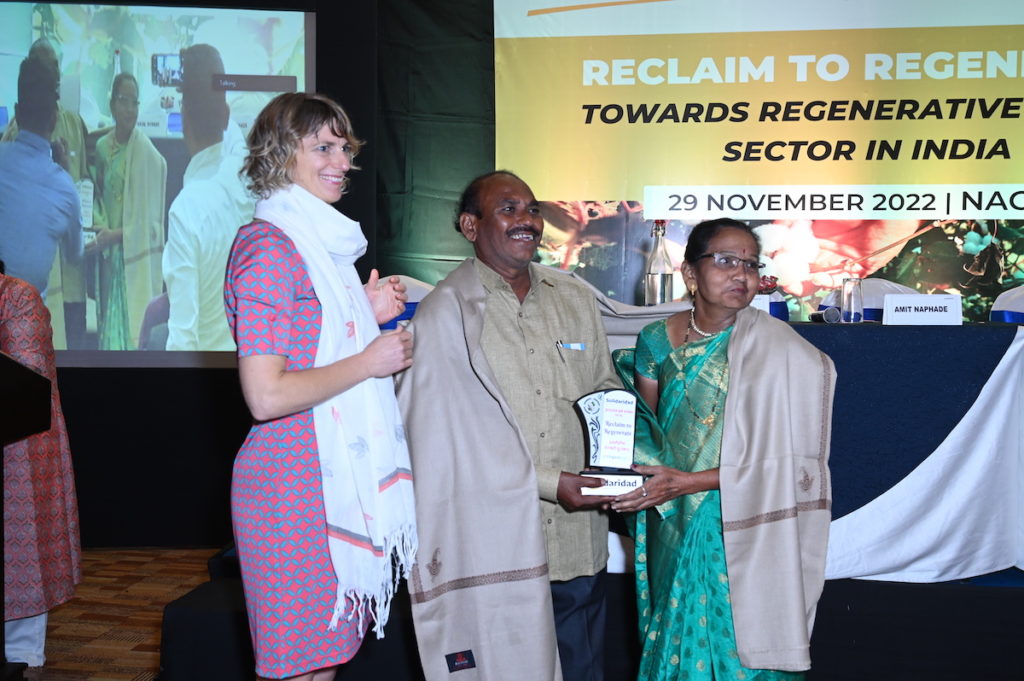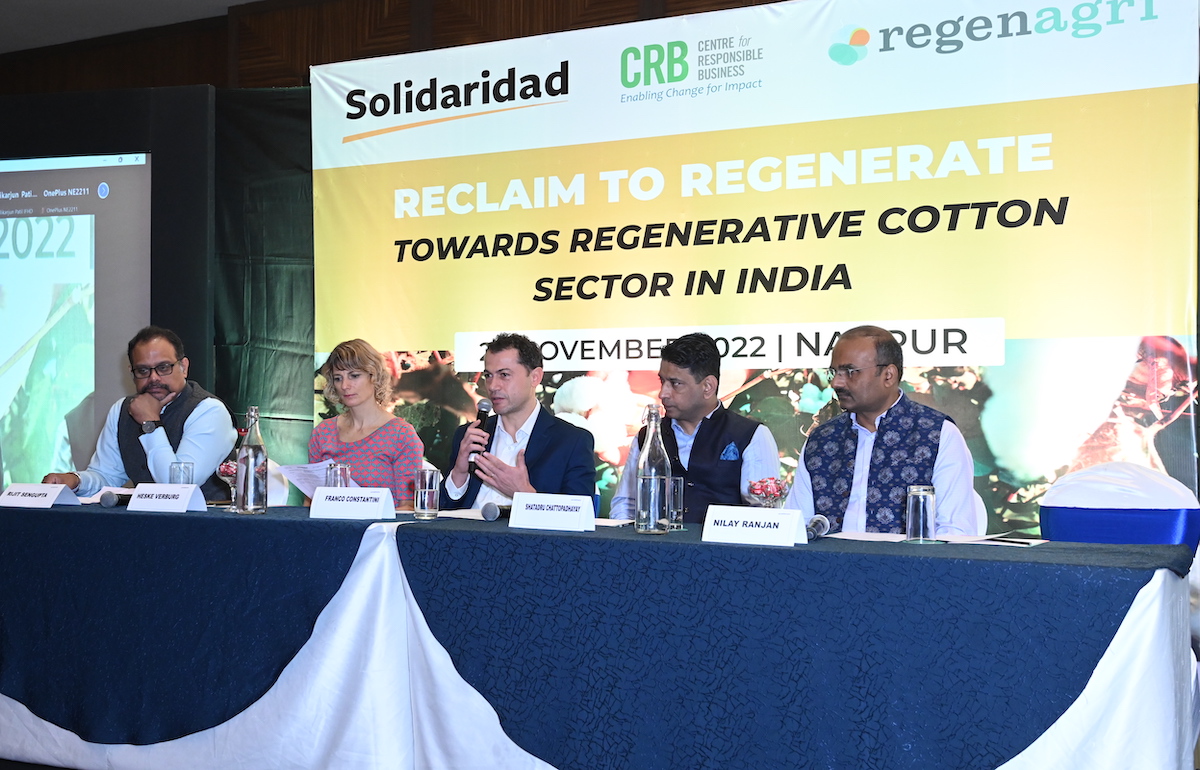Climate change is the most urgent challenge facing cotton farmers in India. Adaptation measures have the potential to help mitigate climate change’s negative impacts on agriculture and the ecosystems that support farming. With this vision, Solidaridad teamed up with the Centre for Responsible Business, a New Delhi-based think-tank, and regenagri, an international initiative to promote regenerative agriculture, to launch the world’s first regenerative cotton platform in India.
“An area of arable land greater than the size of England is abandoned each year due to land degradation; in other words, more rainforests or savannahs end up being plowed to replace this loss,” said Shatadru Chattopadhyay, Managing Director, Solidaridad Asia. “Regenerative agriculture is the next step forward. For Solidaridad, regenerative agriculture is the sustainable agriculture for this decade.”
The launch event, ‘Reclaim to Regenerate: Towards Regenerative Cotton Sector in India’, was held in Nagpur, Maharashtra, with an audience of buyers, brands and textile value chain actors committed to sustainability.
The Alliance aims to promote regenerative agricultural practices by:
- Support the scaling up of regenerative agriculture in cotton with a vision of making India the world’s largest producer of certified regenerative cotton;
- Enable collaboration among cotton and textile value chain actors on regenerative agriculture across various cotton landscapes in India;
- Advance tools/mechanism(s) that balance smallholder benefits with conservation of nature, and augment soil health in different agro-climatic regions and landscapes growing cotton in India;
- Create awareness among national and international consumers/users to demand regenerative cotton;
- Document and communicate success stories on regenerative agriculture in cotton;
- Engage on policy issues related to regenerative agriculture and natural farming at state and national level;
- Build capacity and expertise among cotton and textile sector buyers and brands for wider adoption of regenerative practices in cotton and textile industries; and
- Link cotton farmers practicing regenerative agriculture to initiatives focused on carbon/climate finance/biodiversity finance.
A call to action in the form of the Nagpur Declaration was also signed by stakeholders, committing their support to regenagri-certified cotton.
In 2020, Solidaridad piloted one of India’s largest regenagri certification programmes in Vidarbha, Maharashtra, supporting 8,000 small farmers to adopt regenerative agricultural practices. With ACRE, the target for the next one year is 50,000 tonnes of regenagri-certified cotton from the fields of 10,000 farmers to be used by 10 or more fashion brands.
This partnership will create opportunities for cotton and textile buyers and brands to collaborate with producers/farmers to regenerate natural systems and mitigate climate change. A powerful element of this initiative is how it demonstrates that farmers can be active partners in meeting the climate targets of our country.
– Rijit Sengupta, CEO, Centre for Responsible Business
Franco Costantini, Managing Director, Control Union (UK), who has led the launch of the regenagri programme since 2020, said on the occasion: “regenagri has been doing great work in India where, as of October 2022, more than 40,000 farms are already certified under this programme. The collaboration with Solidaridad and the Centre for Responsible Business is a great opportunity to scale up together and bring the positive impacts that stakeholders are asking for.”
Read more on Solidaridad’s work in the global cotton and textiles sector here.


